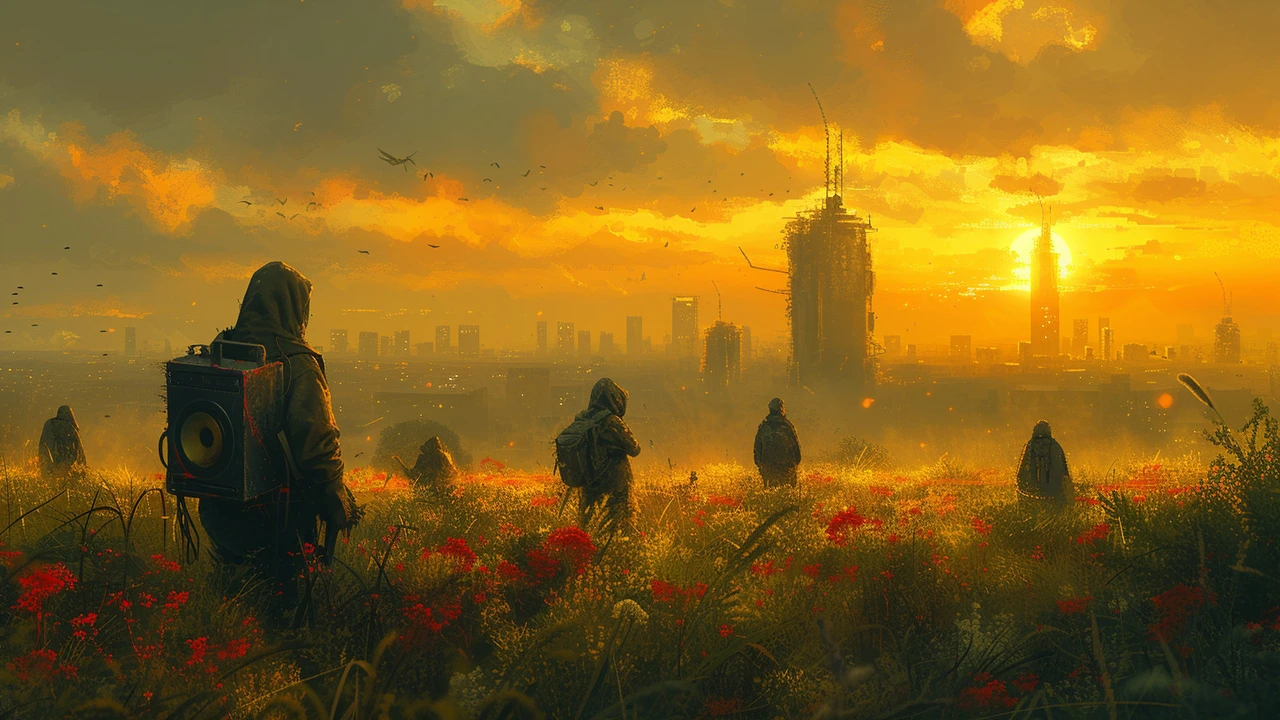Understanding The Intersection of Hip Hop and Social Activism
Have you ever taken the time to listen to the lyrics of a hip hop song? No, I mean really listen. One of the most common misconceptions about hip hop music is that it's all about flashy cars and mindless partying. Far from it, friends! Delve deeper, and you'll find something extraordinary. What Zephyr discovered and wants to share with you today is that hip hop has the power of conveying robust social messages and sparking societal change. From beauty standards to police brutality, to racial profiling and beyond, hip hop has a lot to say. So today, let's explore the role that hip hop music plays in social activism.
Hip Hop: Amplifying the Voices of the Marginalized
The birth of hip hop in the 1970s was not just a musical revolution; it was a platform for marginalized communities, predominantly in the underprivileged areas of New York City, to voice their struggles and demand equal rights. Now, imagine that for a second. Try to visualize crowded blocks with pulsing beats, powerful rhymes, and impassioned declarations of identity, resistance, and resilience. Doesn't that give you goosebumps? It does to me. Hip hop gave - and continues to give - a voice to communities that felt, and often still feel, unheard. Inequality, racism, poverty, police brutality... hip hop artists speak about them all. Each lyric a protest, each rhythm a battle cry, each verse a beacon of hope, each track a testament of resilience.
The Evolution of Social Activism in Hip Hop
As hip hop permeated global cultures, its social activism evolved, its reach expanded, its voice crescendoed. Over time, artists have adapted their lyrics and perspectives to the evolving socio-political landscapes. Take, for instance, the hip hop reaction to the Rodney King riots, police brutality, or more recently, the Black Lives Matter movement.
I remember Tupac Shakur's profound lyrics from his song "Changes," where he says, "I see no changes, wake up in the morning and I ask myself, is life worth living, should I blast myself?" These lyrics shook me and epitomized an intense sense of hopelessness and frustration. Yet, they also encapsulated the collective call for resistances and changes. Today's artists like Kendrick Lamar, J. Cole, and Childish Gambino, continue this tradition of speaking truth to power, their lyrics often echoing the sentiments of large sections of society feeling marginalized, oppressed, and overlooked.
Hip Hop: A Tool for Awareness and Education
Now, let's talk about hip hop's role in spreading awareness and educating people. Have you ever listened to a song and learned something you previously didn't know or hadn't understood fully? Bingo! That's the power of hip hop as a conduit for spreading information and fostering understanding. Who said learning has to be boring?
Take, for example, KRS-One’s “Sound of da Police,” which discusses the parallels between overseers on slave plantations and contemporary law enforcement. Or Yasiin Bey (formerly Mos Def) and Talib Kweli's "Mathematics", which critiques the social structure using statistical data. These songs pushed boundaries, encouraged critical thinking and ultimately aim at sparking constructive discussions and educating people about societal issues. Coupled with catchy beats and persuasive performances, messages conveyed through hip hop not only resonate but also stick around a lot longer than your typical classroom lecture.
Hip Hop Music: Catalyst for Social Change
Hip hop music has not just stayed content with raising issues; it also plays a significant role in inciting action. Groundbreaking songs have inspired generations and fueled movements. I remember back in 1992, when the furious rhythm of Rage Against the Machine's "Killing in the Name" helped channel widespread anger against societal problems. Indeed, many hip-hop artists of the present day, like Chance the Rapper and G-Eazy, use their influence to rally fans for causes they believe in.
Just imagine the ripple effect. One song can reach and impact millions of people worldwide. It can galvanize them, urge them to think, speak up, act, and demand change. This transformational power of hip hop is a testament to music itself as a tool of social activism. The boombox, in this case, is mightier than the sword!
In sum, hip hop is not just a genre of music but a powerful tool of communication, education, and social change. It's a mirror reflecting societal issues, a megaphone amplifying voices of the marginalized, a classroom educating people about these issues, and a catalyst for change. So next time you tune into a hip hop song, remember - every beat, rhyme, and lyric has a story to tell, a voice that demands to be heard.
In Zephyr's book, that's nothing short of incredible.

